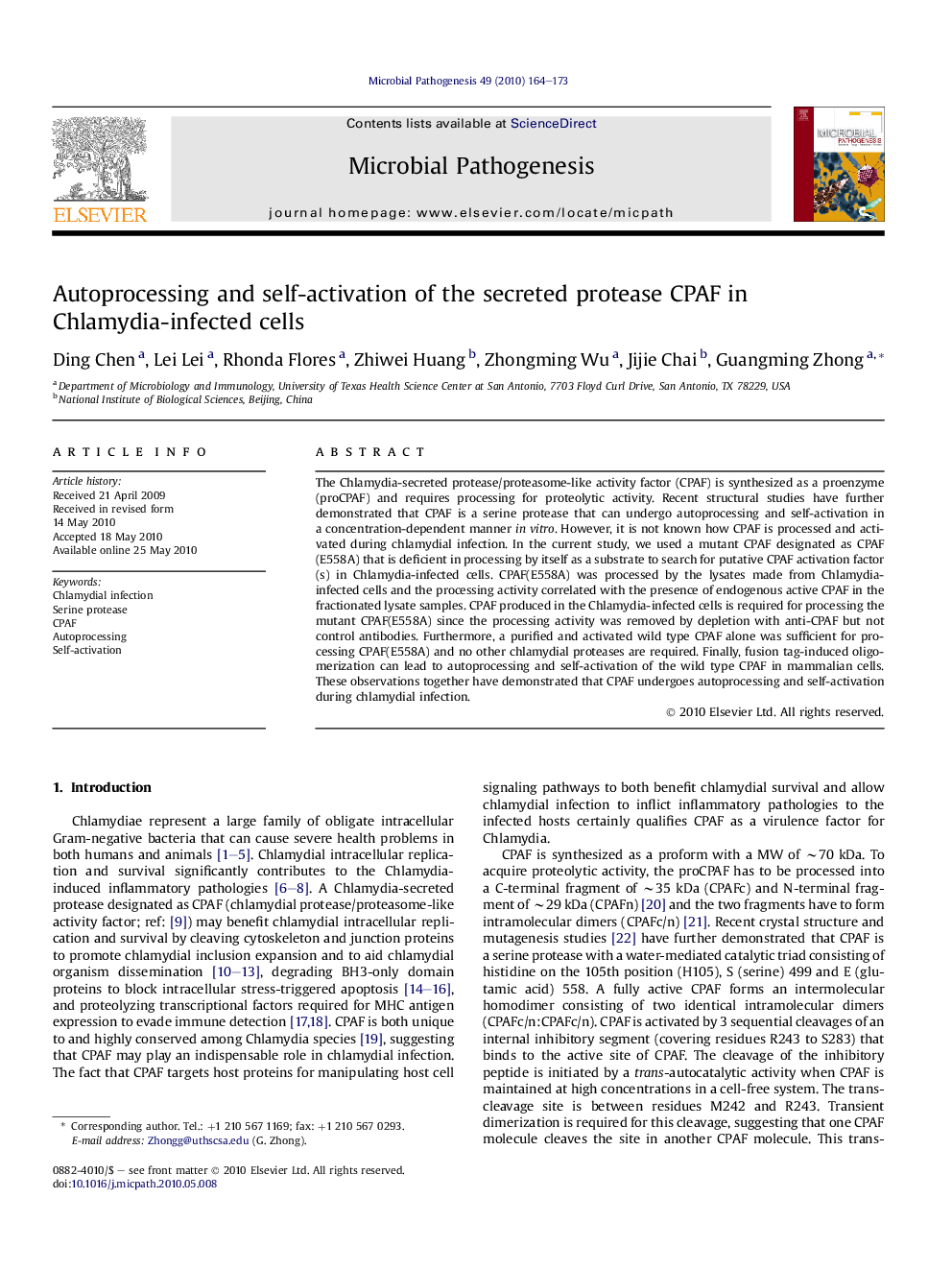| Article ID | Journal | Published Year | Pages | File Type |
|---|---|---|---|---|
| 3416945 | Microbial Pathogenesis | 2010 | 10 Pages |
The Chlamydia-secreted protease/proteasome-like activity factor (CPAF) is synthesized as a proenzyme (proCPAF) and requires processing for proteolytic activity. Recent structural studies have further demonstrated that CPAF is a serine protease that can undergo autoprocessing and self-activation in a concentration-dependent manner in vitro. However, it is not known how CPAF is processed and activated during chlamydial infection. In the current study, we used a mutant CPAF designated as CPAF(E558A) that is deficient in processing by itself as a substrate to search for putative CPAF activation factor(s) in Chlamydia-infected cells. CPAF(E558A) was processed by the lysates made from Chlamydia-infected cells and the processing activity correlated with the presence of endogenous active CPAF in the fractionated lysate samples. CPAF produced in the Chlamydia-infected cells is required for processing the mutant CPAF(E558A) since the processing activity was removed by depletion with anti-CPAF but not control antibodies. Furthermore, a purified and activated wild type CPAF alone was sufficient for processing CPAF(E558A) and no other chlamydial proteases are required. Finally, fusion tag-induced oligomerization can lead to autoprocessing and self-activation of the wild type CPAF in mammalian cells. These observations together have demonstrated that CPAF undergoes autoprocessing and self-activation during chlamydial infection.
